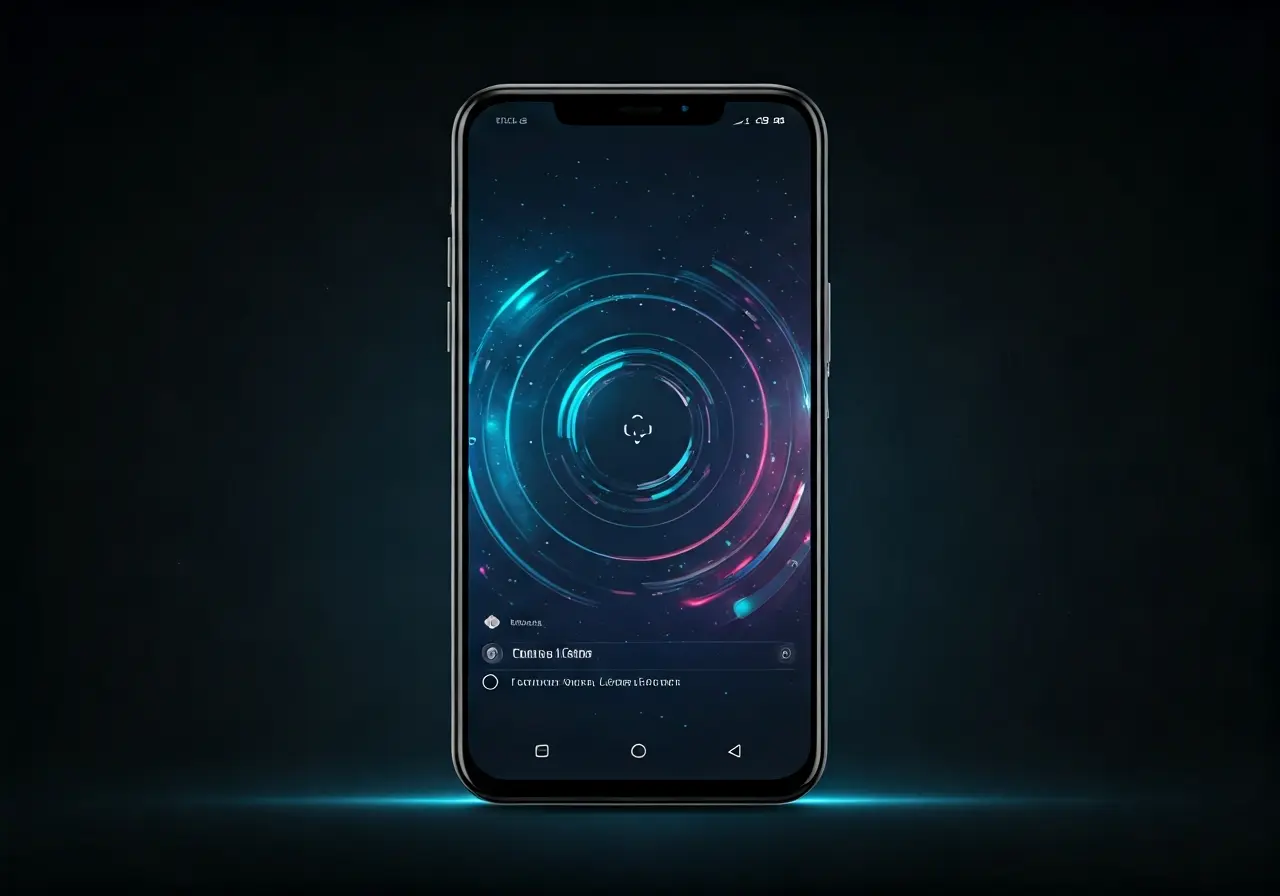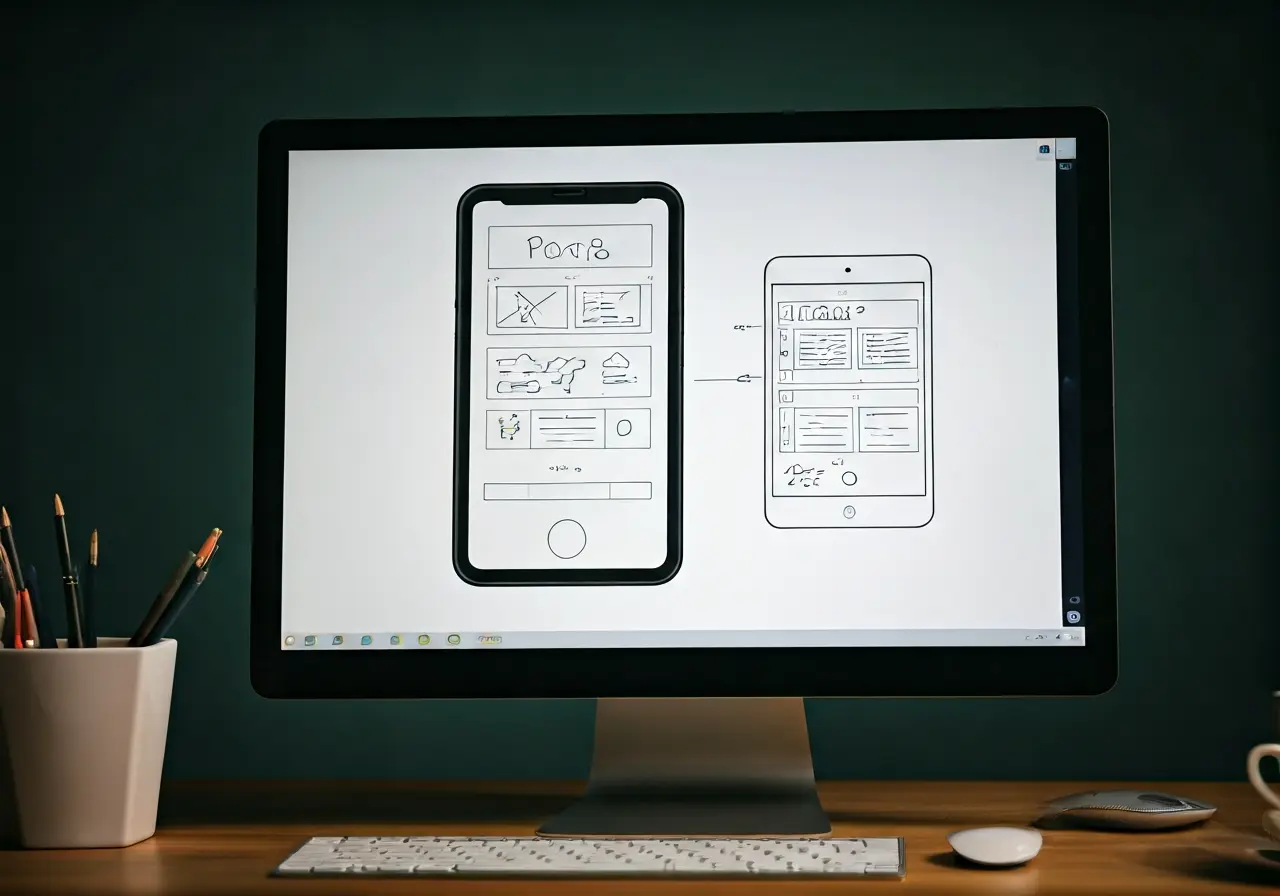15 UX/UI Design Trends Transforming Mobile Apps in 2023
The world of mobile apps is ever-evolving, with new design trends emerging to enhance user experience and interface aesthetics. As we delve into 2023, let’s explore the innovative UX/UI design trends that are transforming mobile apps and setting the stage for more engaging and user-friendly digital experiences.
1. Immersive Dark Modes
Dark mode has evolved from a popular option to a must-have feature in mobile apps. It’s not only easy on the eyes but also enhances battery life, making it a favorite among users. Developers are now taking it a step further by integrating ambient dimming effects that adjust the color temperature based on time or setting. This seamless transition not only adds to the aesthetics but also provides a comfortable viewing experience at all hours.
What makes dark mode particularly interesting is its potential for creative expression. Designers are experimenting with vibrant colors and bold typography against the dark background, providing a striking contrast that draws attention to key content. This transformation goes beyond aesthetics, improving readability and increasing user engagement.
2. Voice User Interfaces
With the rise of voice assistants, integrating voice user interfaces into apps offers a hands-free way to navigate, boosting accessibility and user interaction. Voice commands provide an almost magical experience as users can execute tasks with simple spoken words. This naturally intuitive interaction reduces the dependency on traditional touch input, making apps more accessible to individuals with disabilities.
Furthermore, as natural language processing and AI continue to advance, voice UIs are becoming more sophisticated. They now understand context and can carry out complex actions. This technology removes friction, offering users a fluid experience whether they’re driving, cooking, or multitasking in other ways.
3. Neumorphism in Design
Neumorphism is gaining popularity for its soft, subtle, and three-dimensional effect. This design trend replaces flat designs with more visually appealing elements. It draws its inspiration from skeuomorphism but opts for a more minimalist and cleaner interpretation, adding a layer of depth and realism to the interface by using shadows and highlights.
Designers are finding creative ways to implement neumorphism in elements like buttons, cards, and sliders. By maintaining a balance between functionality and aesthetics, neumorphism transforms simple interfaces into sleek, tactile surfaces. However, it is crucial to maintain a good contrast to keep the user interface accessible and functional.
4. Microinteractions for Engagement
Microinteractions add an extra layer of engagement by providing feedback and guiding users effortlessly through various tasks within the app. These small, interactive moments have a big impact because they demonstrate responsiveness and attention to detail. Whether it’s a subtle animation upon button press, a sound that signifies an action was completed, or a simple progress bar, microinteractions enhance the intuitiveness of user interfaces.
Not only do they delight users, but they also serve an informative function, giving subtle cues on user behavior. In 2023, we see apps increasingly incorporate microinteractions to create more dynamic and interactive experiences, directly influencing user satisfaction and retention.
5. Augmented Reality Experiences
Augmented reality enhances user experiences by overlaying digital information onto the real world, making interactions more immersive. This technology has found its way into various sectors, including retail, where it allows customers to visualize products in their real-life environment before purchase. This not only boosts confidence in decision-making but also enhances customer satisfaction.
In education, AR transforms learning into an interactive and engaging experience, making complex subjects easier to grasp. As the technology becomes more accessible and apps leverage AR SDKs more effectively, users can expect even richer and more informative interactions.
6. Minimalist Navigation
A clean and minimalist navigation structure allows users to focus on the content, reducing cognitive overload and ensuring intuitive interactions. By stripping away unnecessary elements, designers enable users to navigate seamlessly with fewer clicks. Implementing minimalist design doesn’t simply mean using less graphical content—it involves strategic placement of essential elements to guide users intuitively.
The result is a more approachable interface where users don’t have to fish for information. This highly functional aesthetic aligns perfectly with other design trends, creating a cohesive user journey that emphasizes clarity and simplicity.
7. Customizable Interfaces
Allowing users to personalize their app interfaces leads to higher engagement and satisfaction, providing a tailored experience. Customization ranges from simple changes in theme colors and fonts to more complex modifications like dashboard configurations that match individual workflows.
Incorporating customization impacts user empowerment positively, as they feel more in control of their digital space. With AI-driven analytics, app interfaces can now suggest customizations based on user behavior, making apps smarter and more responsive to individual needs.
8. Gestural Navigation
Gestural navigation replaces traditional buttons, offering a more seamless and intuitive way for users to interact with apps. The swipe, pinch, and tap gestures provide a natural method of control, minimizing the need for complex menus and button presses.
This trend is especially prevalent in mobile app development, as it optimizes the limited screen space available on devices. However, to ensure ease of use, designers need to include guidance for users unfamiliar with gesture-based navigation.
9. Biometric Authentication
Security is enhanced with biometric authentication, making access faster and more secure through fingerprints or facial recognition. This advanced technology eliminates the need for users to remember cumbersome passwords, providing convenience without compromising security.
As biometric systems become more sophisticated, they’re providing smoother, almost instant access, further enhancing the user experience. This widespread adoption signifies a shift towards more secure and user-friendly authentication methods in mobile apps.
10. Focus on Accessibility
Ensuring apps are accessible to all users by incorporating features like text-to-speech and adjustable text sizes promotes inclusivity. Developers are increasingly aware of the need to offer adaptable user interfaces that cater to individuals with various disabilities.
This approach not only broadens the user base but also enhances the experience for everyone. As companies prioritize accessibility, we can expect continued innovation in this area, fostering a more inclusive digital environment.
11. Use of Bold Typography
Bold typography draws attention and communicates hierarchy, making it easier for users to read and interact with content. This trend emphasizes clarity by using larger, bolder fonts for headlines and subheads, while maintaining sophisticated designs.
With an increasing focus on content-centric design, bold typography is a powerful tool for guiding user attention, improving readability, and reinforcing brand identity. In busy digital spaces, clean typography stands out, making information more digestible.
12. Seamless Multidevice Experience
Creating experiences that are consistent across devices ensures that users can seamlessly switch between their phones, tablets, and watches. Multi-device integration means users can start a task on one device and continue on another without interruption.
This continuity is paramount in today’s connected world, where users expect a flawless transition and consistent performance across all platforms. Designers must pay attention to maintaining the same quality of experience, regardless of the screen size or operating system.
13. Incorporating Animation
Animation brings life to apps, providing a dynamic experience that enhances storytelling and user engagement. It can convey complex processes through simple, visual narratives. From animated transitions to playful interactions, animation captivates users and maintains their interest.
Balanced animation improves the overall feel of the application without overwhelming users. Developers are integrating animations to create smooth narratives that make navigating the app feel more like a natural exploration rather than a series of discrete tasks.
14. Skeuomorphic Elements
Returning to skeuomorphic designs adds a sense of familiarity by mimicking real-world elements, making apps intuitive and user-friendly. Movements toward skeuomorphism revisit textured interfaces which feel natural, tapping into the user’s experiential knowledge.
Though typically considered outdated, skeuomorphism has a renewed interest due to its ability to instruct through familiarity. By bridging digital interaction with real-world cues, it redefines usability in modern applications while catering to a wide range of audiences.
15. Eco-Friendly Design
Sustainability is becoming a priority, with designs focusing on reducing energy consumption and promoting eco-awareness within apps. Green app design is not only about efficiency but also about nudging users toward environmentally conscious habits.
Eco-friendly apps promote awareness by incorporating features such as power-saving modes and providing users with insights into their digital carbon footprint. As the focus on sustainability grows, the industry moves towards creating apps that have a lower environmental impact.










